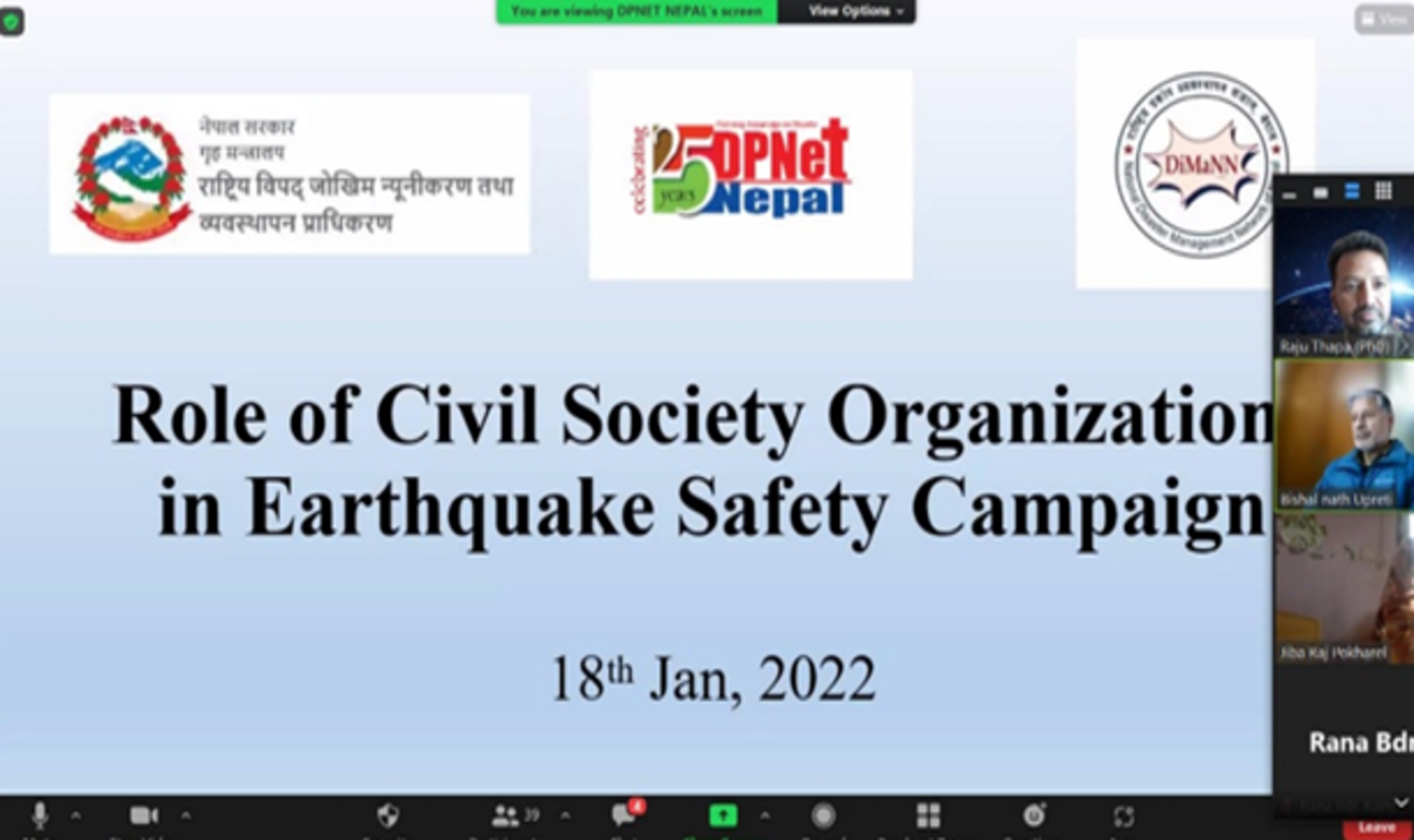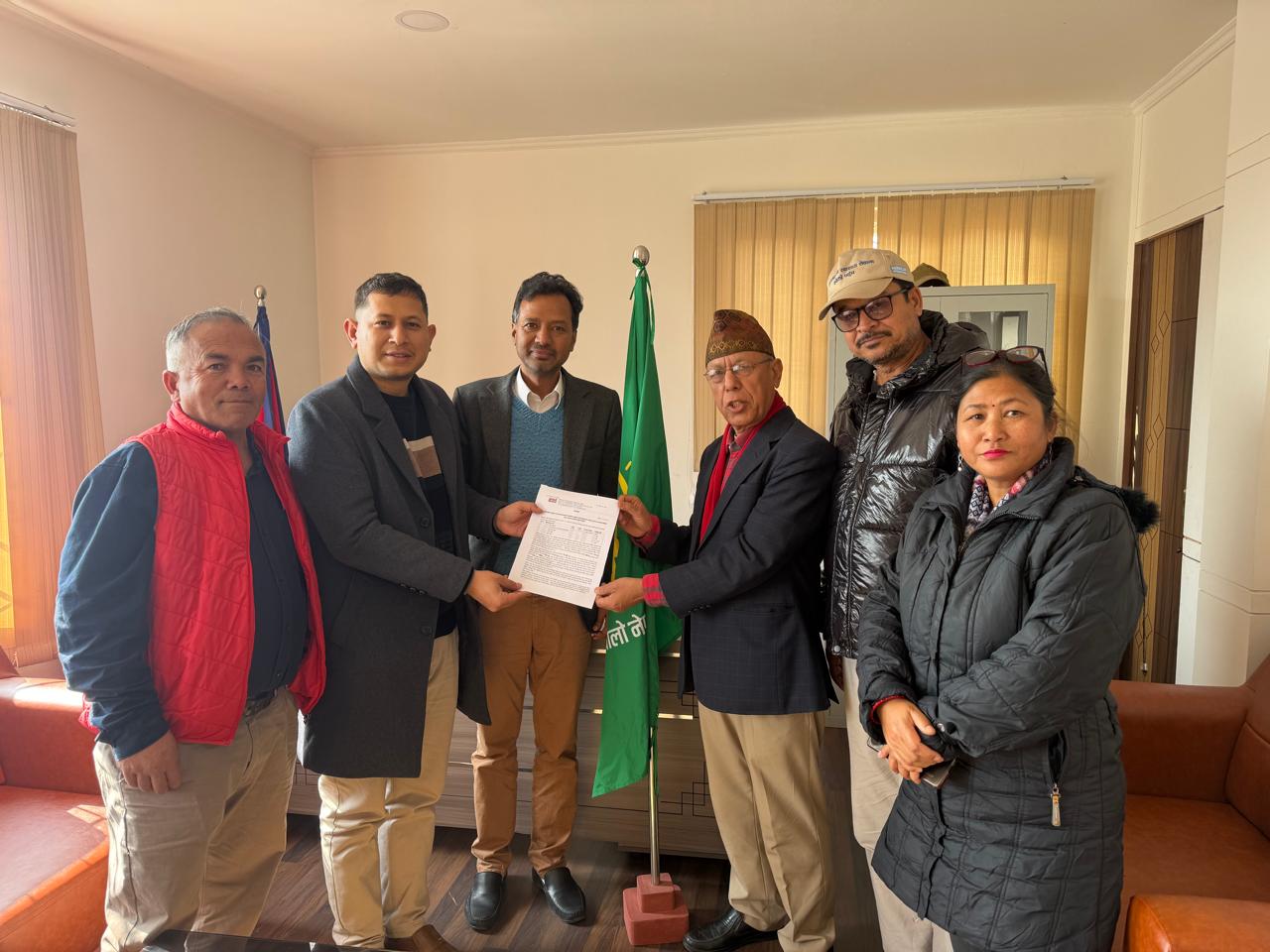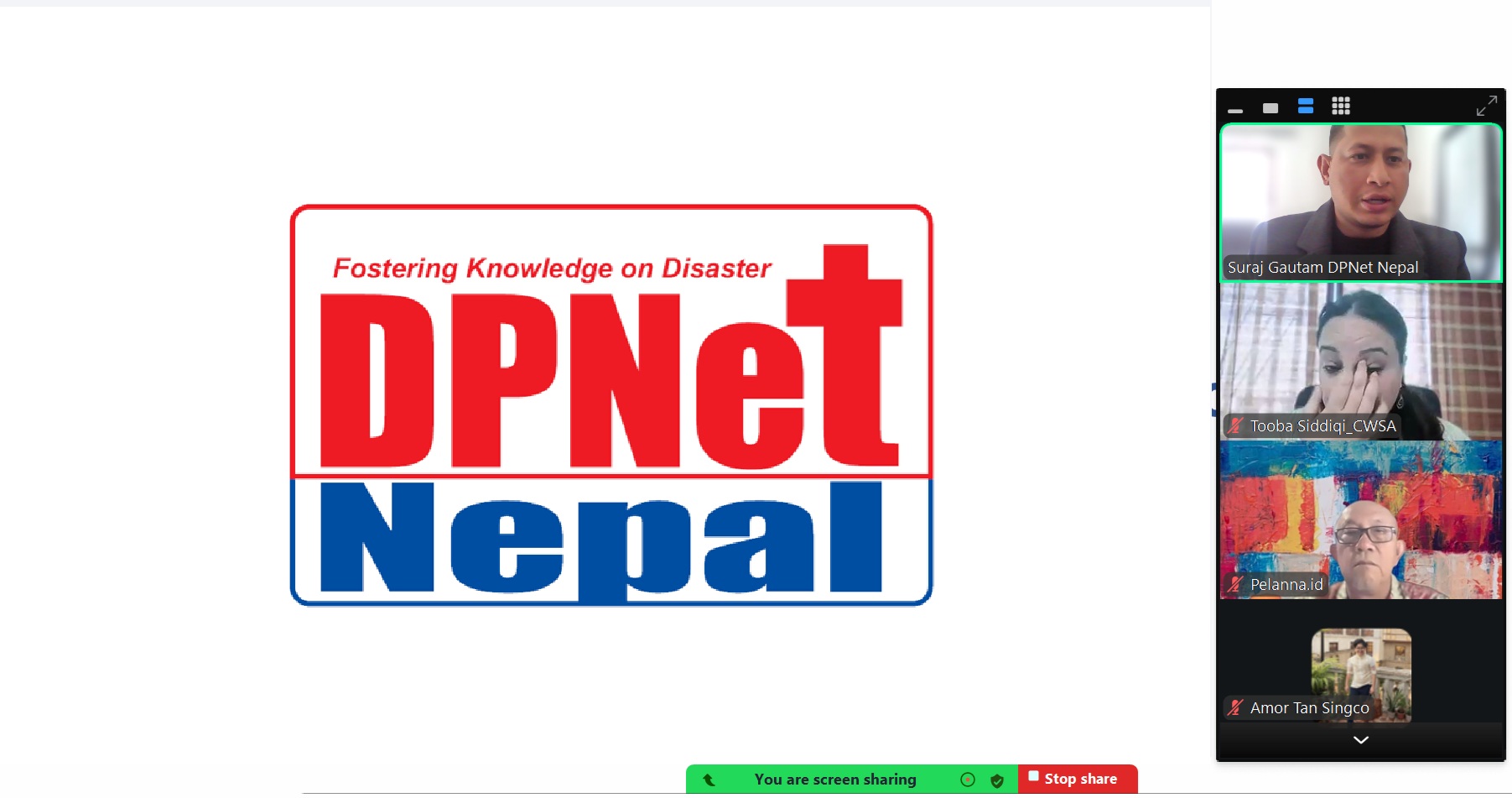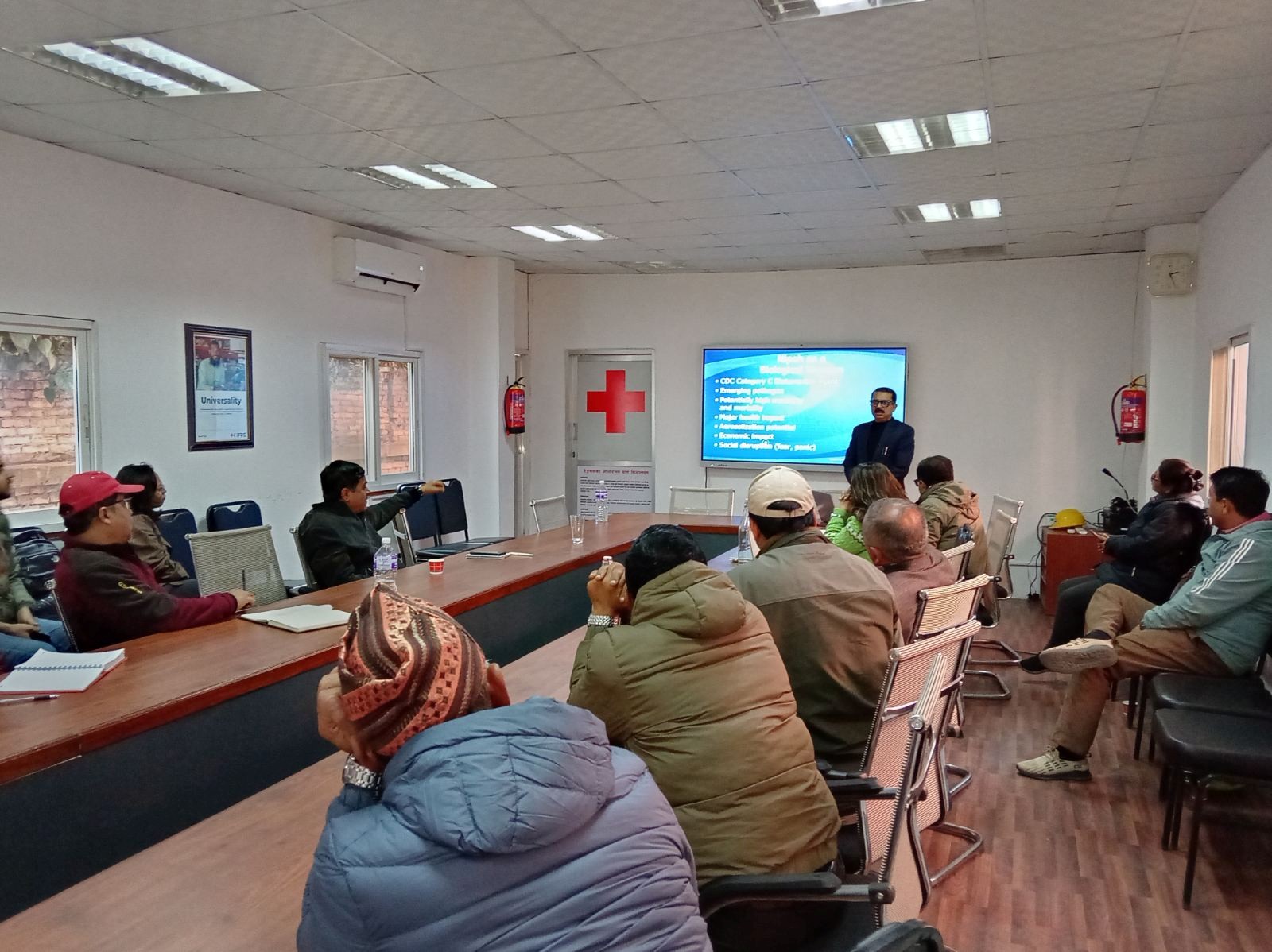Role of Civil Society Organizations (CSOs) in Earthquake Safety Campaign
Jan 23, 2022

The Role of Civil Society Organizations (CSOs) in Earthquake Safety Campaign was jointly organized by Disaster Preparedness Network (DPNet-Nepal) and National Disaster Management Network Nepal (DiMaNN) on 18th January 2022 virtually. Dr. Raju Thapa, Vice Chairperson, DPNet facilitated the program. Opening the virtual discussion Dr. Raju Thapa shared about the civil society organizations which have been actively working in the field of disaster. He said that documentation in the field of disaster is lacking. Mr. Kailash Rijal, General Secretary of DPNet welcomed all the participants and highlighted about mitigating the earthquake risk and its impotence in a seismically vulnerable country like Nepal. Since Nepal lies in earthquake hazard zone, it is important to have preparedness for reducing the risk. The CSO role should extend to inform the people about the disaster risk and inform them about the government’s guideline. All together 75 participants joined the webinar.
Major Highlights
Major Highlights
- Mr. Bishnu Prasad Timilsina, General Secretary of DiMaNN gave a presentation on, ‘Role of Civil Society Organizations (CSOs) in earthquake safety campaign’. His presentation included about the status of disaster and humanitarian crisis in Nepal. He shared the concern of civil society organizations regarding earthquake safety because CSOs have a vital role in advocating and monitoring the implementation of existing policy. His presentation emphasized on the importance of empowering and capacitating the local community since they are the first respondent of disaster.
- Mr. Surya Narayan Shrestha, Executive Director, NSET gave a presentation on ‘Scenario of the earthquakes in Nepal and the role of civil society organization (CSO) in earthquake safety promotion’. He shared a glimpse of the Global earthquake hazard map and explained the status of earthquakes in Nepal. He also shared a global risk map and explained the effect of earthquakes in Nepal. He said that the hazard is still there and we have high vulnerabilities and a lower level of preparedness, Hence the risk is still very high, and risk is increasing day by day. He also shared the source of earthquake risk and importance of risk reduction. He said that CSOs can support, cost effectively, the government system in awareness and capacity building and support in disaster preparedness and planning. He requested DPNet to take a lead to coordinate NGOs to make collective efforts on earthquake risk reduction and awareness raising sectors.
- Prof. Dr. Jib Raj Pokhrel, Former Vice Chancellor, NAST gave a presentation on ‘The use of Indigenous Knowledge and Technology for Earthquake safety Promotion’. He said that the local knowledge, skills, technology and locally available resources can be useful for earthquake safety promotion. Giving examples from houses of Jumla and Iran, he said, local people are more knowledgeable about the place's specific technology and resources so CSOs can play roles to incorporate their knowledge, skill and technique in risk reduction.
- Mr. Bed Nidhi Khanal, Chief District Officer of Sindhupalchowk district said that the resource allocation to remote districts like Sindhupalchowk is very low. The district needs to build more than 1500 houses but lacks overseers and surveyors. He said disaster prone districts need to be prioritized more. He also asked to extend support for the district.
- Mr. Rishi Raj Acharya, Under Secretary from MoFAGA gave his guest remarks and said that CSOs have a vital role in monitoring the implementation of existing rules. Then the local bodies also should take CSOs suggestions as guidelines.
Major Discussions:
- We can reduce the earthquake risk by adopting indigenous technology. The result will be better if the Local bodies adopt the local technology for risk reduction.
- It was discussed about the effective implementation of Sendai Framework, DRR strategic action plan 2018-2030 to mitigate the loss of lives and property in earthquake event.
- There is lack of will power among the implementing agencies. So, research should be carried out to modify and implement the innovative ideas.
- It was discussed to prioritize awareness, capacity building and integrated structure by donor agencies.
- Proper mobilization of trained and skilled manpower was also discussed in the program.
- Importance of empowering the community and need of incorporating the local knowledge in DRR emphazied.
- It was discussed about the role of political parties and local leaders in DRR. We need to develop a habit of lodging complain against the parties those failed to work on disaster.
- The plans, policies and strategies should be standard and flexible. It was discussed about the role of CSO in formulating policies and advocating the implementation of the rules.
- Low income families and vulnerable groups of people should have access to housing. It was discussed about the accessibility of indigenous knowledge to local people.
- Lack of skilled human resource is main challenge of DRR while lack of common understanding of the DRR among local bodies and CSOs is another challenge.
- It was discussed about DPNet to formulate the national level program to address the challenges.
Mr. Anil Pokhrel, CEO of NDRRMA, in his special guest remarks thanked the entire team of DPNet for the execution of the discussion program. He said that working in DRR is challenging but we can do it with a collective efforts of CSOs/ INGOs and the national strategic action plan need to be implemented in local level effectively. He praised the efforts of CSOs in disaster risk reduction and management. He committed taht NDRRMA wants collectively work in DRR with NGOs and with all stakeholders for risk assessment of all types of disasters. NGOs contribution should be visible, heard and replicable since it has been playing important role to disseminate indigenous knowledge.
Dr. Raju Thapa, Vice Chairperson of DPNet gave vote of thanks to all presenters, speakers and participants and finally closed the program.
Dr. Raju Thapa, Vice Chairperson of DPNet gave vote of thanks to all presenters, speakers and participants and finally closed the program.











